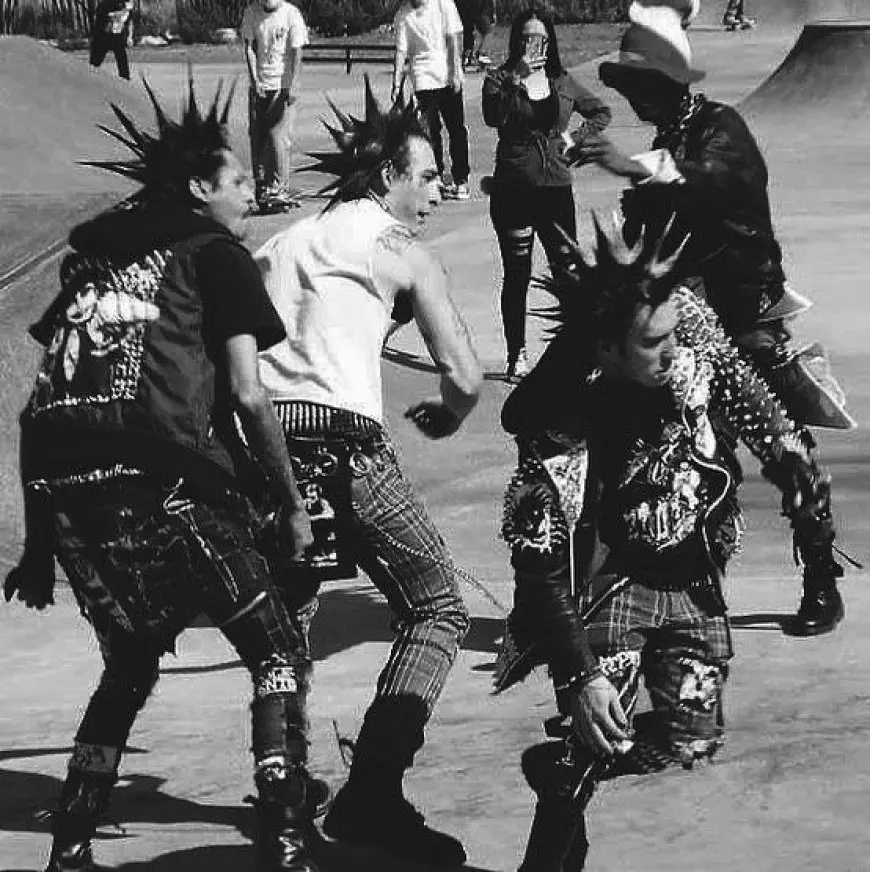The History of Punk Rock and Its Legacy
The History of Punk Rock and Its Legacy

Punk rock is more than just a genre of music—it is a cultural movement that has left an indelible mark on both the music industry and society. Emerging in the mid-1970s, punk rock represented a rebellion against the mainstream music scene, as well as societal norms and conventions. With its raw sound, anti-establishment ethos, and DIY (do-it-yourself) mentality, punk rock became an important outlet for youth discontent and self-expression. In this article, we will explore the origins of punk rock, its key figures, and its lasting impact on both music and culture.
The Origins of Punk Rock
Punk rock originated in the United States and the United Kingdom during the mid-1970s, influenced by the garage rock bands of the 1960s, as well as the rebellious spirit of earlier rock 'n' roll. In New York, bands like the Ramones, Television, and Patti Smith Group played an instrumental role in shaping the early punk scene. At the same time, in the UK, bands like the Sex Pistols and The Clash emerged, creating a more politically charged version of punk.
The genre was characterized by simple, fast-paced music, often with short songs and raw, unpolished production. Punk rock’s aggressive sound was a rejection of the more elaborate and commercialized rock music of the time, such as progressive rock and disco. The lyrics often addressed themes of rebellion, alienation, and dissatisfaction with authority, reflecting the frustrations of the youth who felt marginalized or ignored by society.
The Punk Aesthetic and Fashion
Punk rock was not only a musical movement but also a visual one. The punk aesthetic—characterized by torn clothes, leather jackets, safety pins, and brightly colored or spiked hair—became a symbol of rebellion and individuality. Punk fashion was often DIY, with fans and musicians alike creating their own clothes and accessories. This rejection of consumerism and mass production was an integral part of punk culture, aligning with its anti-authoritarian philosophy.
The fashion associated with punk rock also found its roots in the working-class youth of the time, who used their appearance to challenge the norms of society. Bands like the Sex Pistols and the Clash often used their image and style to provoke and challenge the status quo, making fashion an essential part of the punk rock movement.
The Punk Rock DIY Ethic
One of the most significant aspects of punk rock was its DIY ethic. Rather than relying on major record labels or expensive studio equipment, many punk bands self-produced their albums, distributed their music independently, and created their own fanzines and artwork. This ethos of self-reliance and independence became a core value of the punk scene, inspiring countless artists and bands to take control of their music and careers.
The DIY approach also extended beyond music production and distribution. Punk bands often played in small, independent venues and organized their own tours. This culture of independence gave rise to an underground music scene that emphasized artistic freedom and the rejection of commercial interests. The DIY ethic helped make punk rock a grassroots movement that remained close to its origins as a form of self-expression and protest.
The Impact of Punk Rock on Society and Music
Punk rock's impact extended far beyond the music scene. The genre provided a platform for marginalized voices and challenged the norms of both the music industry and society. It fostered a sense of community and belonging among young people who felt disconnected from mainstream culture. Punk rock also gave rise to a number of other alternative music genres, including post-punk, grunge, and hardcore punk, which continued the spirit of rebellion and nonconformity.
Musically, punk rock had a significant impact on the sound of modern music. Its stripped-down, high-energy style influenced countless bands across genres, including alternative rock, indie rock, and even metal. Punk also played a major role in the rise of independent music labels, which allowed for greater artistic freedom and diversity in the music industry.
Punk Rock and Political Activism
In addition to its influence on music, punk rock became a voice for political activism. Many punk bands, particularly in the UK, were outspoken in their criticism of government policies, economic inequality, and social injustice. The Clash, for example, used their music to comment on the political climate of the 1970s and 1980s, addressing issues like racism, police brutality, and unemployment.
Punk rock's connection to political activism continues to this day. Many modern punk bands remain engaged in social and political causes, using their music to raise awareness about issues like climate change, LGBTQ+ rights, and workers' rights. The punk ethos of challenging authority and standing up for the oppressed has made it a lasting symbol of resistance and activism.
The Legacy of Punk Rock
The legacy of punk rock is still felt today in many areas of culture. While the original punk movement may have faded by the 1980s, its influence on music, fashion, and activism continues to resonate. Punk rock inspired the formation of countless bands, from Green Day to Nirvana, who carried the torch of rebellion into the 1990s and beyond.
Moreover, the DIY ethic that punk rock championed is still alive and well in today's independent music scene. Modern artists continue to reject the constraints of the mainstream music industry, creating their own paths through self-promotion, independent labels, and online platforms. Punk's emphasis on individuality and authenticity remains a central tenet of contemporary music and culture.
punk rock, DIY ethic, music history, political activism, rebellion, alternative music, fashion, music culture, punk legacy, social change
Punk rock was more than just a musical revolution; it was a cultural movement that reshaped society's approach to music, fashion, and politics. Its legacy can still be seen in the rebellious spirit of modern music and in the ongoing fight for social justice and political change. Punk rock's influence is timeless, continuing to inspire new generations to embrace their individuality and challenge the status quo.







